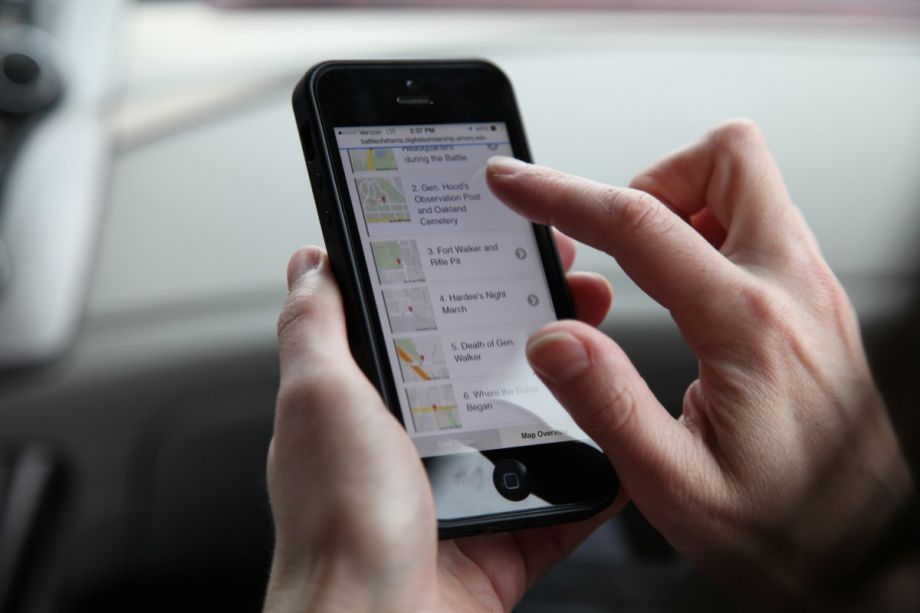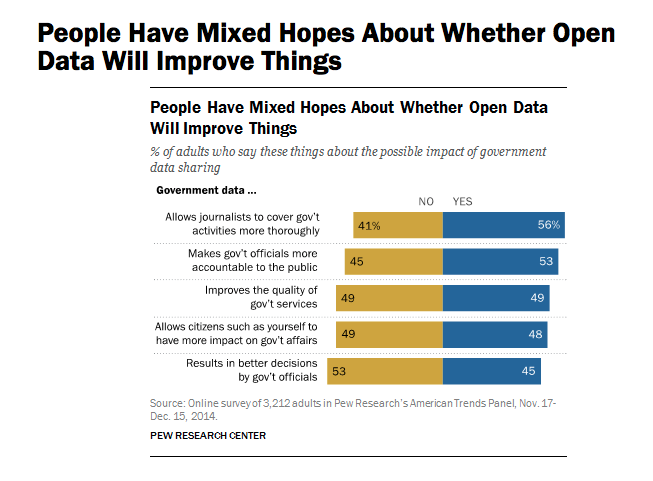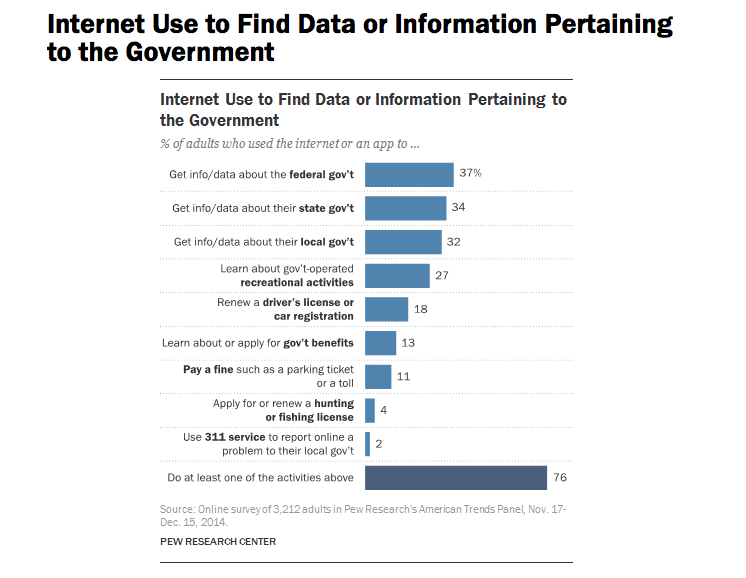
(AP Photo)
While 65 percent of Americans have recently gone online to find government information, only 53 percent think open data will make officials more accountable.
In a new look at open data and transparent government at the federal, state and local levels, the Pew Research Center recently asked citizens how they think their city hall is doing with embracing the digital age.
City-themed hackathons and apps and online tools abound thanks to those who like to crunch data into accessible forms for the public, and those surveyed gave slightly higher marks to municipalities when it comes to data-sharing, with 7 percent saying “local governments share data very effectively,” and just 5 percent agreeing on the same effort at state and federal level. (Just this week, Bloomberg Philanthropies announced an initiative (with $42 million) to help mid-sized cities use data more effectively.)
“Generally, people are optimistic that these initiatives can make government more accountable; even though many are less sure open data will improve government performance,” the report notes. “And government does touch people online, as evidenced by high levels of use of the Internet for routine information applications.”

One of the top open-data benefits to Internet-savvy searchers? Finding out about recreational options. (Think park hours.)

App builders take note, Pew also asked smartphone users (68 percent of sample) what they consider useful data. Weather and maps ranked high, but public transportation got a noteworthy nod too:
84% have used weather apps to find out the forecast nearby.
bq. 81% have used map apps to navigate through a city or neighborhood.
bq. 66% have used an app to find out about nearby stores, bars or restaurants.
bq. 31% have used apps to get information about public transportation.
bq. 14% have used apps such as Uber or Lyft to hire cars.
Despite widespread use of commercial applications that rely on government data, just 9% (among all Americans) say that the data government shares with the public helps a lot with the private sector’s creation of new products and services, while another 41% says it helps somewhat.
As for privacy concerns, the Pew survey found not everyone is comfortable with all kinds of data-sharing. Restaurant health records? Sure, said 82 percent. Individual criminal records? Okay, said 62 percent. Real estate transactions? This is a bit more divided, with 52 percent saying OK. Individual homeowners’ mortgage information? Only 22 percent were fine with that.
Overall, Pew notes a “chicken-and-egg” dilemma. What comes first: government data or trust in government?
“Do government data initiatives spark high levels of trust in government?” the researchers ask. “Or do low levels of trust in government attenuate the benefits to civic engagement that are a motive for many government initiatives?”